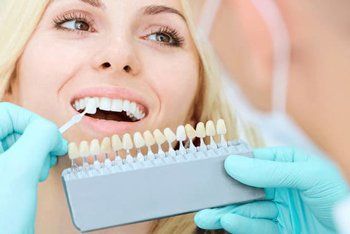Dental implants involve several procedures for single and multiple tooth replacement. Depending on your case, you may have a bone graft, implant placement, and tooth replacement performed.
After each procedure, follow your dentist's aftercare instructions to enjoy the best results from your implant treatment. Here are three ways to be good to your mouth after implant procedures.
1. Watch What Comes in Contact With Your Implant
Your dentist's office will go over the foods and beverages you should avoid after implant procedures, and they will send you home with a reminder sheet. Aftercare food and beverage recommendations are designed to minimize contact with ingredients that could delay implant-site healing.
Aftercare food and beverage instructions are also intended to minimize pain at the site of your bone graft or implant. Soft foods are gentle on gums involved in your bone graft or implant surgery.
Suggestions for nutritious soft foods include:
- Yogurt
- Smoothies
- Soups
- Hummus
- Oatmeal
- Mashed potatoes
- Yams
- Eggs
Nut butters made of almond or peanuts are good soft protein sources. Soft cheeses like cream cheese and Brie are also packed with protein.
Avoid chewing on ice and other too-hard foods after your procedures. Continue to avoid foods such as super-chewy caramels, tough meats, and hard candies after your brand-new tooth is in place.
2. Watch How You Use Your Mouth
Drinking through a straw is not recommended after implant surgery, even though a nice cool milkshake is fine for a treat. Just drink the shake from the side of the cup or with a spoon.
When you use your mouth to pull your drinks through a straw, suction is created. That suction could dislodge blood clots at your surgical site.
Smoking and using a nicotine vaporizer are also discouraged after any type of implant surgery for the same reason. The drawing in of smoke or vapor may hinder blood-clot formation and healing at the implant site. The ingredients in vaporizer liquid and tobacco may also reduce blood flow to the gums and implant site.
You may be advised not to clean the site right after surgery when you do your tooth-brushing. Vigorous brushing at the implant or graft site may cause tissue pain and tenderness. You may use an antibiotic rinse your dental office recommends to periodically disinfect the site before it can be brushed normally.
3. Watch for the Warning Signs of Trouble
All implant procedures involve slight to moderate discomfort at the site of the bone graft or titanium screw. Your dentist may prescribe painkillers or will recommend using an over-the-counter medicine like ibuprofen for mild pain.
Your dentist may also prescribe antibiotics to limit your risk of infection at the graft or implant location. You can help keep the site free of infection by taking your full course of antibiotics as instructed.
If you have severe pain or swelling at the implant site, these symptoms could be warning signs of infection or other complications. Alert your dentist's office if your pain is unmanageable or if the implant site begins swelling or oozing pus.
Other signs to watch out for after implant procedures include:
- Loosening of implants
- Profuse bleeding of graft or implant site
- Numbness in lower jaw, lips or tongue
- Infected sinuses
Occasionally, an implant will not properly join with the jawbone. In these cases, your dentist may install a slightly larger implant screw. If your implant seems too loose or wobbly, let your dentist know right away so they can schedule a visit to correct the problem.
Dental implants are successful over 90 percent of the time. Dentists who offer implants are very comfortable and familiar with the procedure. If you follow your dentist's aftercare advice, and call the office when you have any questions or concerns, you help give your implant a great beginning.
Contact Rabel Family Dental General Dentistry to schedule your
quality dental implant procedure
in the Baton Rouge, Louisiana region. We offer single, bridge, and denture-style implants to restore handsome smiles and chewing ability in patients with missing or damaged teeth.







